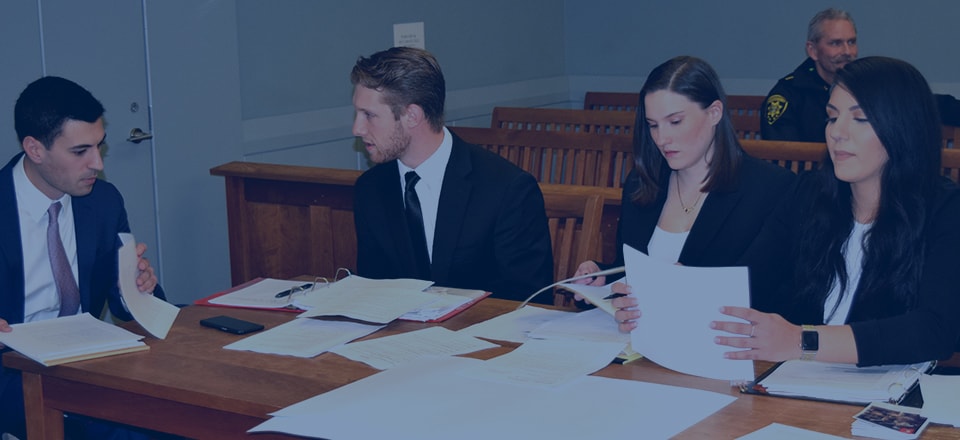Redressing Legacies of Injustice
Journal RGE
 Four Symposium Panels over Four Days:
Four Symposium Panels over Four Days:
January 26, 2022 / February 16, 2022 / March 23, 2022 / April 13, 2022
BEING HELD VIRTUALLY via ZOOM for NO CHARGE
* CLE Credits Available for each Symposium *
For additional information, please email Symposium Editor Raj Telwala.
--CLICK HERE FOR CLE EVALUATION FORM--
UPCOMING PANEL:

Panel 4: Imagining a World: What Would Reparations Look Like on the Ground?
Wednesday, April 13, 2022
5:00 – 7:00 pm
While the prior panels provided an overview of reparations, evaluated the topic in the context of globalism, and looked at the relationship between memory and repair, the final panel will imagine a world where the United States has incorporated a reparations framework into its domestic policy and explores what that kind of world would look like. This panel will evaluate the impact of such policies on areas like housing, education, healthcare, the distribution of wealth, and more.
Panelists:
Preston Green III – John and Maria Neag Professor of Urban Education and Professor of Educational Leadership and Law, Neag School of Education, University of Connecticut
Norrinda Hayat – Associate Professor of Law and Director of the Civil Justice Clinic, Rutgers Law School
Eugene Richardson – Assistant Professor of Global Health and Social Medicine and Assistant Professor of Medicine, Division of Global Health Equity, Brigham and Women’s Hospital, Harvard Medical School
Danielle D. Rogers – Associate Corporate Counsel, Redwood Logistics
Moderator:
Oscar Michelen – Adjunct Professor of Law, Touro College Jacob D. Fuchsberg Law Center
____________________________________________
VIEW PREVIOUSLY HELD PANELS IN THIS SERIES:
An Overview of Reparations
Wednesday, January 26, 2022
The opening panel set the stage for the symposium by crafting a vision of reparations on a conceptual level. What do we mean when we discuss reparations? What kinds of wrongs are ideally addressed through a reparations framework? What kinds of obligations do state actors have to repair the collective harms that have been imposed on groups, even when the beneficiaries would not be the ones who directly experienced the harm?
Panelists:
Justice John G. Browning – Visiting Associate Professor of Law, Faulkner University Jones School of Law
Natsu Taylor Saito – Regents’ Professor and Professor of Law, Georgia State University College of Law
Timothy Webster – Professor of Law, Western New England University School of Law
Moderator:
Professor Deseriee Kennedy, Touro College Jacob D. Fuchsberg Law Center
PANEL 2: Globalism and Restorative Justice
Wednesday, February 16, 2022
5:00 – 7:00 pm
The second panel will look at historic, state-based harms in the international context and examine global models for evaluating the push for reparations. What strategies have different states and nations considered in the effort to repair past significant harms? How might the experiences of other nations be instructive within the domestic context?
Panelists:
Dr. Daniel Butt – Associate Professor, Robert Maxwell Fellow and Tutor in Political Theory, Balliol College, University of Oxford
Dominique Day – Chairperson, United Nations Working Group of Experts on People of African Descent and Founder and Executive Director, Daylight
John Linarelli – Associate Dean for Academic Affairs and Professor of Law, Touro College Jacob D. Fuchsberg Law Center
Glenys Spence – Assistant Professor of Law, Dwayne O. Andreas Barry University School of Law
Moderator:
Rodger Citron, Associate Dean for Research and Scholarship and Professor of Law, Touro College Jacob D. Fuchsberg Law Center
PANEL 3: Negotiating Memory in the Project of Repair
Wednesday, March 23, 2022
5:00 – 7:00 pm
The third panel will look at how memories are not simply those actions, thoughts, feelings, and decisions that we remember; in the reparations setting, they are also the constructed terrain on which states constitute both their official stories and the rights of the people who have been harmed by the processes of positive mythmaking and intentional disregard. The third panel, then, will look at the ways in which states negotiate memory and the role it plays in the context of repair: what do we remember, how and why do we forget, and how does the memory of state-sanctioned harm relate to the imperative to address past harms, especially as they continue to resonate in the present?
Panelists:
Eric Miller – Professor of Law and Leo J. O’Brien Fellow, Loyola Law School, Los Angeles
Sara L. Ochs – Assistant Professor of Law, Louis D. Brandeis School of Law, University of Louisville
Marc Roark – Louisiana Outside Counsel of Health and Ethics Endowed Professor of Law, Southern University Law Center
Ruti G. Teitel – Ernst C. Stiefel Professor of Comparative Law and Director, Institute for Global Law, Justice, and Policy, New York Law School
Moderator:
Tiffany C. Graham, Associate Dean for Diversity and Inclusion and Associate Professor of Law, Touro College Jacob D. Fuchsberg Law Center


